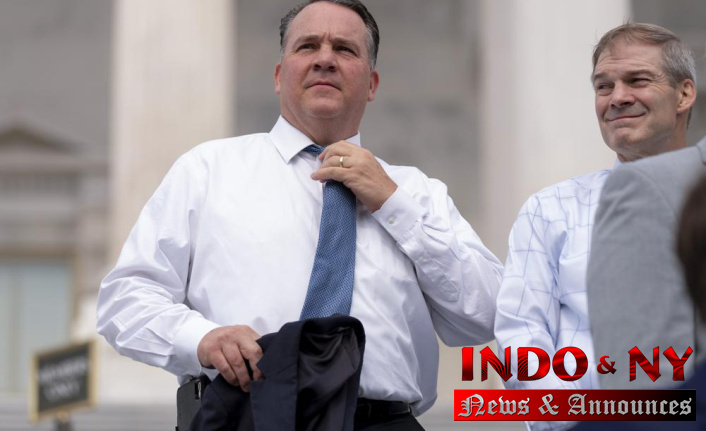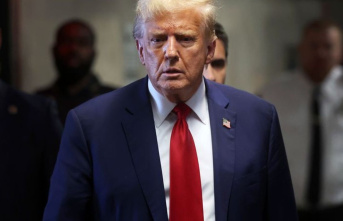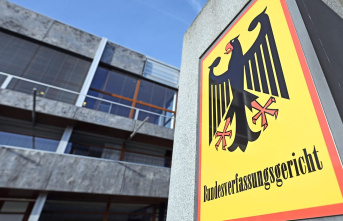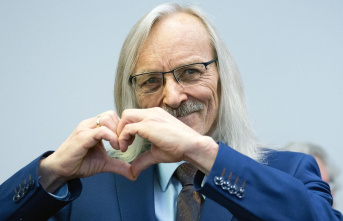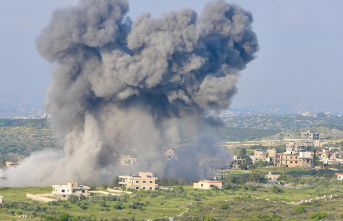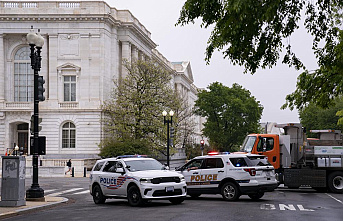One candidate believes West Virginia voters will recognize the importance of federal spending on infrastructure in one the country's most impoverished regions. One other contender is betting more on Trump's loyalty.
The May 10th primary in West Virginia's 2nd Congressional District will be a gauge of Trump's power in a state that has embraced him wholeheartedly in his two presidential election victories.
After West Virginia lost a seat in the U.S. House of Representatives due to population declines, these two incumbents were put against one another. Their divergent paths as congressmen could help Republican candidates nationwide to get a sense of what appeals to hardcore conservative voters in 2022.
Trump is trying to increase his control over the GOP, and this contest takes place during a heightened stretch of the midterm elections season. JD Vance was his preferred candidate in the Ohio Republican primary. However, Trump faces potentially more difficult tests in North Carolina, Georgia, and Pennsylvania.
West Virginia is still a magnet for Trump's enthusiasm. He won in every county in 2016, and in 2020, winning more that two-thirds the state's votes. West Virginians want to see infrastructure improvements in a state that is consistently ranked among the worst. Its rugged terrain is littered with crumbling roads and failing bridges, and thousands of residents are without safe drinking water and internet access.
Trump made it clear that he supported Mooney when President Joe Biden signed into law the infrastructure bill. McKinley, along with 12 other House Republicans, was repeatedly condemned by Trump for voting for the Democrats' $1.2 trillion infrastructure bill. He said, "Republicans who voted to prolong the Democratic Party's rule of law should be ashamed."
Mooney, a former Maryland state senator, is now a 50-year old Hispanic congressman from West Virginia. He moved to West Virginia in 2014 to run for Congress and has stepped up his attacks on Trump. McKinley was called a RINO (Republican in No Name Only) and a sellout who had betrayed his constituents. McKinley, 75, is a seventh-generation West Virginian who is a civil engineer by profession. He says that the state's infrastructure issues are too serious for anyone to "play party politics."
He said that "there's no doubt that it was the right vote", referring to the American Society of Civil Engineers' "D" infrastructure rating. "West Virginia was ranked last. A reasonable, commonsense person would tell West Virginia, "You got a problem. Fix it."
McKinley endorsed McKinley for his infrastructure vote. Jim Justice, a Trump supporter, said that his infrastructure vote took courage. He also mentioned other officials competing for infrastructure improvements in West Virginia.
Paul Howe, the president of Clarksburg Water Board, Harrison County, in northern West Virginia, called McKinley’s infrastructure bill vote "tremendous" stating that his community urgently needs to replace its lead service lines.
After three children with high levels of lead in their blood, the U.S. Environmental Protection Agency placed the municipal water system under administrative orders. An additional study revealed that nearly 4,000 customers had lead service lines. It would cost $52 million to replace them, which is a significant burden for small cities.
According to Howe, McKinley collaborated with the city officials to provide bottled water and filters for residents and conduct an engineering study regarding replacing the lines. Clarksburg was a frequent stop for the congressman to see the water plant and to strategize how to apply to infrastructure funds.
Although Howe stated that he liked both congressmen, Mooney's attacks against McKinley in his vote for infrastructure helped to make the decision clear.
He said, "It's difficult to defend that." "If there's one thing the government can do right, it's reinvesting in infrastructure."
However, West Virginians won't see many of the infrastructure upgrades that will be made over the next few decades. Trump's popularity is still palpable in West Virginia.
Mooney stated in an interview that "if you drive through West Virginia today you'd believe the (2020) election still is going on." "There are Trump flags all over West Virginia. Trump signs -- anti-Biden signs. It is a significant gesture for voters."
Ron Howell, a Buckhannon-based manager at a lumber business, stated that his support for Mooney was "50% Trump" and McKinley's vote to vote with Democrats.
He said, "He supported President Donald Trump. I voted for him and would again in heartbeat." McKinley seems like a RINO who supports the left's agenda. I don't want McKinley's support for my state.
McKinley and Mooney voted 87% of all the time together during their time as West Virginia representatives in Congress during Trump’s last two years. Mooney claims that McKinley voted with Democrats on big votes. He also supported the creation of a commission in order to investigate the Jan. 6, 2017 insurrection at U.S. Capitol.
Drew Harbert, 20, from Harrison County, Clarksburg, said that he believes McKinley will be lost more votes than the supporting infrastructure.
Harbert, a Fairmont State University student who is president of the Harrison County Young Republicans, stated that "I don’t think people take that very kindly that McKinley voted for that." McKinley's reputation will be hurt more by this than any other thing he has done.
Harbert stated that he understands the need for infrastructure repairs in the state. However, Harbert expressed serious concerns over the growing national debt and said that it was irresponsible of McKinley not to vote for a bill at such a high price.
Harbert stated that Trump's endorsement was a major factor in his decision to support Mooney, but it wasn't the only reason. He was looking for a candidate who would defend gun owners' rights. McKinley supported red flag laws that allow law enforcement and family members to petition the court to take firearms away from anyone who poses a danger to themselves or others.
McKinley claims he voted for Trump more than 90% of the time he was in office. He also said that he believes Mooney misled voters about the vote on the infrastructure bill. McKinley cited a Mooney campaign advertisement that attacked him for backing Biden for a trillion dollar spending spree, but only mentions infrastructure in printed text.
Howell, the manager of the lumber company, stated that he believed McKinley voted in favor of Biden's Build back Better plan, which McKinley opposed strongly. He initially cited this vote as an excuse for supporting Mooney. He found out that McKinley voted as he would most of the times after doing further research. He said that he could not forgive McKinley's Jan. 6 votes and his infrastructure votes.
He said, "I wish that we were in different times" and that he could be nonpartisan. But the Democrats made it impossible.
Nate Orders is a bridge-building contractor and president of Contractors Association of West Virginia. He said that there was a lot of hypocrisy when it comes to criticizing the bill's infrastructure, as well as the Republicans who voted in support. Trump supporters supported infrastructure spending when the former President introduced his $2 trillion proposal. Democrats rejected it.
He stated that Alex Mooney's win was another sign that democracy is on the verge of collapse, and that party politics has taken over. "If David McKinley wins it gives me hope that, even though we may disagree on big issues, we can still agree on the important things that make a difference for Americans."

